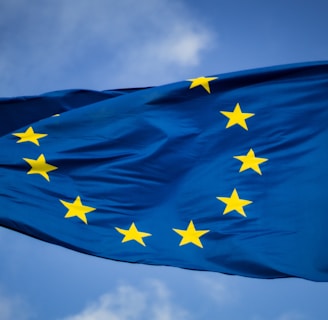Understanding the EU AI Act: Promot Technologies Insights
Learn about the EU AI Act, its risk levels, and global AI regulation. Promot Technologies supports open-source platforms for transparent, democratic AI innovation
INTERESTING TOPICS
Navdeep Singh Mangat (with team Promot)
6/29/20242 min read


Understanding the EU AI Act: Promot Technologies Insights
The European Union has taken a significant step forward in regulating artificial intelligence (AI) with the introduction of the EU AI Act. This groundbreaking legislation aims to create a legal framework that balances innovation with ethical considerations, ensuring the safe and transparent deployment of AI technologies.
The EU AI Act categorises AI systems into three risk levels: unacceptable, high, and low or minimal risk.
- Unacceptable Risk: AI applications that pose a clear threat to safety, livelihoods, and rights, such as social scoring by governments, are banned outright.
- High Risk: This category includes AI systems used in critical infrastructure, law enforcement, education, and employment. These systems are subject to strict requirements, including rigorous testing, documentation, and oversight. High-risk AI systems must comply with the regulations within 24 months from the enactment of the law.
- Low or Minimal Risk: AI applications like chatbots or spam filters fall into this category and are subject to minimal regulation, mainly transparency obligations. These systems need to comply within 36 months from the enactment of the law.
Other sectors exempted from this law include open-source platforms, research and development, and free software. This decision underscores the EU's recognition of the importance of transparency and collaborative innovation in the AI landscape.
Global AI Regulation: A Comparative Snapshot
United States
In the U.S., AI regulation is currently a patchwork of sector-specific guidelines and voluntary frameworks. The focus is primarily on fostering innovation while addressing ethical and safety concerns through initiatives like the National AI Initiative Act.
China
China's approach to AI regulation is characterised by a top-down, centralised strategy. The government has issued various guidelines emphasising security, ethics, and the integration of AI into the broader economic plan. However, China's regulatory environment is also marked by extensive surveillance measures, raising concerns about privacy and individual freedoms.
India
India is in the early stages of formalising AI regulations. The country has released several policy papers and guidelines aimed at promoting ethical AI development. The focus is on leveraging AI for economic growth while addressing challenges like data privacy and security.
The EU’s Open-Source Exception: A Step Towards Democratising Technology
The EU's decision to exempt open-source platforms from stringent regulations is a forward-thinking move. Open-source platforms offer transparency, allowing developers and researchers to scrutinise and improve AI algorithms collectively. This openness is essential for building trust and ensuring that AI technologies are fair and unbiased.
Promot Technologies staunchly supports the use of open-source platforms. We believe that the transparency and collaborative potential of open-source software represent the true democratisation of technology. By making the source code publicly available, open-source platforms empower developers worldwide to innovate responsibly and inclusively.
The key takeaway
The EU AI Act sets a high standard for AI regulation, balancing innovation with ethical considerations. By categorising AI systems based on risk levels and making strategic exceptions for open-source platforms, the EU is fostering a safe and transparent AI ecosystem. As countries like the U.S., China, and India develop their regulatory frameworks, they can draw valuable lessons from the EU's approach.
At Promot Technologies, we are committed to promoting open-source solutions that embody transparency and democratisation. We believe that such an approach not only accelerates innovation but also ensures that AI serves the greater good.
Linktree Social Media
Subscribe
Promot Technologies@2017 All rights reserved. A digital marketing division of S.K.A.T. (S.K. Agri-Tech Pvt. Ltd.)
Click on the green icon for our socials